
May 24
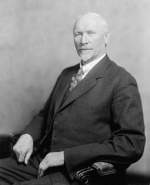
1870 Birth: Jan Smuts: South African statesman, soldier, and prime minister:
Jan Christian Smuts was born on a farm near Riebeeck West in the Cape Colony. His ancestors were mainly Dutch, with a small admixture of French and German but no English, though he was born a British subject.
In 1891 he obtained a scholarship and entered Christ’s College, Cambridge, where he read law and was generally recognized as one of the most brilliant law students Cambridge had had. He was the first ever to take both parts of the law tripos examinations in the same year, and in both he came first. From Cambridge he went to London, where he came first in the Inns of Court honours examination and was awarded two prizes. It seemed clear that a distinguished academic career lay ahead of him; nevertheless, Smuts wanted to return to South Africa.
Returning to Cape Town in 1895, Smuts was at once drawn into politics. At first he supported Cecil Rhodes, prime minister of Cape Colony. But the raid of L.S. Jameson on the Transvaal destroyed his confidence in Rhodes, and, finding himself without political attachment and with insufficient legal work, Smuts decided to move to Johannesburg. At the end of 1897 he married Isie Krige, moving to Pretoria a year later when he was appointed state attorney by Pres. Paul Kruger. At the age of 28 he was thus at the centre of Transvaal politics and, in effect, at the centre of South African politics. From then until his death he was continuously involved in South African and world affairs.
Returning to Cape Town in 1895, Smuts was at once drawn into politics. At first he supported Cecil Rhodes, prime minister of Cape Colony. But the raid of L.S. Jameson on the Transvaal destroyed his confidence in Rhodes, and, finding himself without political attachment and with insufficient legal work, Smuts decided to move to Johannesburg. At the end of 1897 he married Isie Krige, moving to Pretoria a year later when he was appointed state attorney by Pres. Paul Kruger. At the age of 28 he was thus at the centre of Transvaal politics and, in effect, at the centre of South African politics. From then until his death he was continuously involved in South African and world affairs.
For the first nine months of the South African (Boer) War, which began in October 1899, Smuts was part official and part soldier, moving between Pretoria and the front. When Pretoria was occupied by the British he became a full-time soldier, eventually receiving an independent command. He was an apt pupil in the guerrilla tactics that were so successfully exploited against the overstretched British lines of communication. In April 1902 he invaded the Cape Colony—to within 120 miles (190 kilometres) of Cape Town, but by then his force was too little and too late. When the war ended he had to be recalled, under British escort, to take part in drafting peace terms.
Just as Smuts was drawn into the public life of his own country, so, after the outbreak of World War I, he was drawn into international affairs. When he and Botha had suppressed rebellion in South Africa, conquered South West Africa, and launched a campaign in East Africa, he went to England for an imperial conference (March 1917). Prime Minister Lloyd George at once recognized his abilities and made him minister of air. From then on he was used in a variety of tasks. He organized the Royal Air Force and was concerned in all major decisions about the war. At the peace conference at Versailles, the English economist J.M. Keynes regarded him as the greatest protagonist of a moderate peace that would not crush Germany, and he may justly be called one of the principal progenitors of the League of Nations.
A few months after their return from Versailles, Botha died, and Smuts became prime minister. Nearly five years later he was defeated by a coalition of the Nationalist and Labour parties and remained in opposition until 1933, when he and J.B.M. Hertzog joined forces against the more extreme nationalists. Smuts was content to serve under Hertzog, but they were in deep disagreement about whether South Africa should go to war if Britain did. When the crisis came in September 1939 Smuts’s view prevailed by a narrow majority of 13 in Parliament. Smuts became prime minister, and South Africa declared war on Germany.
During World War II South Africa played a much greater part than in World War I, but Smuts himself was not as important a figure as he had been during 1914–18. He was consulted by Sir Winston Churchill and other Allied leaders, but his main role was to prevent Germany and Italy from conquering North Africa. Once that objective was achieved, he and his country became of relatively minor importance. Smuts represented South Africa at the 1945 San Francisco Conference at which the Charter of the United Nations was drafted. [For further information, click here.]
1887 Birth: [Edward] Mick Mannock: World War I flying ace:
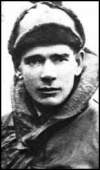
Mannock had a natural aptitude for flying. Captain Chapman, one of the men responsible for training Mick, later reported that: "He made his first solo flight with but a few hours’ instruction, for he seemed to master the rudiments of flying with his first hour in the air and from then on threw the machine about how he pleased.
Captain James McCudden, who was later to become one of Britain’s leading flying aces, was another instructor who was impressed with Mick Mannock’s skills as a pilot. In March 1917, it was decided that Mannock was ready to be sent to the Western Front. Mannock arrived at St. Omer in France on 6th April 1917. At first Mannock’s personality and political opinions upset the other pilots. Lieutenant Lionel Blaxland later recalled his first impression of Mannock: "He was different. His manner, speech, and familiarity were not liked. New men usually took their time and listened to the more experienced hands; Mannock was the complete opposite. He offered ideas about everything: how the war was going, how it should be fought, the role of scout pilots, what was wrong or right with our machines. Most men in his position, by that I mean a man with his background, would have shut up. [For further details, Click here]
1913 24-year-old Adolf Hitler leaves Vienna for Munich: After purchasing a full wardrobe of new clothes, and with his sizable inheritance in his pocket, Hitler moves from Vienna to Munich, in Bavaria, accompanied by Rudolf Haeusler, a 19-year-old shop assistant. This will be the first time since setting out on his own that Hitler takes up residence in Germany proper. He will remian in Munich until August of 1914. [For further details, Click here.]
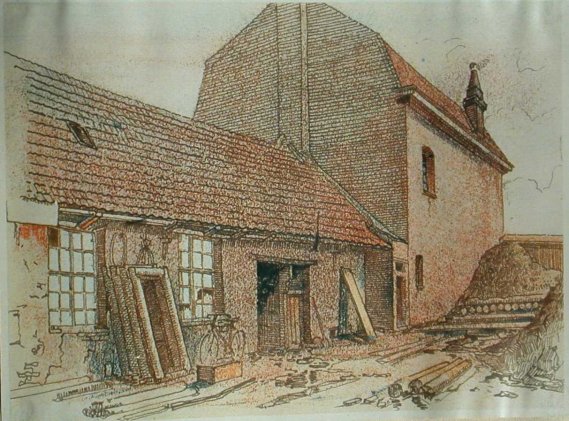
Fromelles Watercolor, 1915, by Hitler
1915 World War I: List Regiment: Gefreiter Adolf Hitler’s 16 Reserve Infantry Regiment occupy a position, at Fromelles, which is on a level field with water channels, willow trees and willow stalks, in the distance towards the enemy lines lie an insignificant wood with barbed wire entanglements. Under the direction of their defense-minded commander, Lieutenant General Gustav Scanzoni von Lichtenfels, the regiment works ceaselessly day and night to further fortify their position at Fromelles while fighting off repeated assaults by the enemy. [For further details, Click here.]
1916 World War I: Various:
General von Cramon on the Asiago Offensive:
The beginning was magnificent. The German-Austrian picked troops of the attacking group recorded a great achievement and within a few days brought in 30,000 prisoners and 300 guns. Asiago was taken. Von Falkenhayn sent a cordial telegram of congratulation to von Hotzendorf, whose acknowledgment was equally hearty. At Teschen general headquarters everyone was beside himself with delight. The German officers also frankly rejoiced over the victory won by our ally.
On the 24th of May, however, the corps of the Austrian Crown-prince came to a standstill. The enemy meanwhile utilized the situation and brought up all the artillery and infantry that could possibly be placed on the ‘terra firma,’ covered in every direction by lines of railroad and highways. I was informed subsequently that the troops of the 20th Army Corps had begged to be permitted to make the leap to the edge of the mountains, without "drawing breath," and before the enemy could recover. But the corps command would not permit this because it believed that the heavy artillery would first have to be brought up. In this way the Italians had been able to gain a footing. [For further details, Click here.]
List Regiment: Gefreiter Adolf Hitler endures trench warfare in Flanders (Artois) with 3 Company, 16 Reserve Infantry Regiment [List Regiment]. [For further details, Click here.]
1917 World War I: Various:
War at Sea: British naval convoy system introduced:
On this day in 1917, driven by the spectacular success of the German U-boat submarines and their attacks on Allied and neutral ships at sea, the British Royal Navy introduces a newly created convoy system, whereby all merchant ships crossing the Atlantic Ocean would travel in groups under the protection of the British navy. [For further details, Click here]
List Regiment: Gefreiter Adolf Hitler’s 16th RIR redeploy east of Douai for a period of rest which will extend until June 24. [For further details, Click here.]
1918 World War I: List Regiment: Gefreiter Adolf Hitler’s 16th RIR is behind the lines for a period of rest that will last until May 30. [For further details, Click here.]
1919 Voelkishness: Guido von List: Philipp Stauff writes an obituary for the Muenchener Beobachter, a voelkisch newspaper edited by Rudolf von Sebottendorff. This publication will soon become the official party newspaper of the Nazi party, and will remain so until May 1945. (THP)
1933 From an internal SS report:
On May 24, 1933, the 30-year-old, single, attorney-at-law, Dr. Alfred Strauss from Munich, who was in the concentration camp Dachau as a prisoner under protective custody, was killed by two pistol shots from SS Man Johann Kantschuster who escorted him on a walk, prescribed for him by the camp doctor, outside the fenced part of the camp.
Kantschuster gives the following report: He himself had to urinate; Strauss proceeded on his way. Suddenly Strauss broke away towards the bushes located at a distance of about 6 meters from the line. When Kantschuster noticed it, he fired two shots at the fugitive from a distance of about 8 meters; whereupon Strauss collapsed dead. On the same day, May 24, 1933, a judicial inspection of the locality took place. The corpse of Strauss was lying at the edge of the wood. Leather slippers were on his feet. He wore an irlock [sic] on one foot, while the other foot was bare, obviously because of an injury to this foot.
Subsequently an autopsy was performed. Two bullets had entered the back of the head. Besides, the body showed several black and blue spots and also open wounds. I have charged Kantschuster today with murder and have made application for the opening and execution of a judicial preliminary investigation as well as for the issuance of a warrant of arrest against him.
1936 Begium: Fascism: The Rexists party wins 21 seats in parliament.
1938 Holocaust: Austria: The Nuremberg Laws are officially introduced. Books written by Jews, and works not favoring Nazi ideology are removed from Vienna’s libraries and bookstores.
[See: Austria: The Other Germany.]1940 World War II: Various:
Boulogne: British destroyers evacuate 5,000 men from the port.
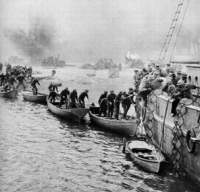
Dunkirk: By morning, three panzer divisions and two motorized infantry divisions are within 15 miles of Dunkirk. Hitler orders the halt of Rundstedt’s armored forces. Whether Hitler actually ordered the halt or merely approved Rundstedt’s request is still a matter of controversy. Note: Earlier that same day Hitler visits Rundstedt’s headquarters and expresses his desire to come to term with the British. Rundstedt tells him he wants to temporarily stop the advance to regroup and prepare for what he sees as the more important task: the turn south and the conquest of the rest of France. On returning to his mountaintop headquarters, Hitler issues a stream of orders halting the advance of every unit now moving toward Dunkirk. (THP)
[See: What Were Adolf Hitler’s Major Blunders?]From the diary of General Franz Halder:
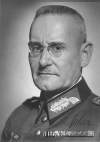
The left-wing, which consists of armored and motorized forces and has no enemy in front of it, will be stopped dead in its tracks upon direct order from the Fuehrer. The finishing-off of the encircled enemy army is to be left to the Luftwaffe.
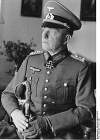
General Ewald von Kleist disobeys orders and crosses the Aa Canal. His forces enter the town of Hazelbrouck, cut the British and French lines of retreat from Belgium to Dunkirk, and barely misses capturing the commander of the BEF, General Lord Gort. Kleist is told in emphatic terms to return to the opposite side of the canal, which he does. (Duffy) Note: After the war, Rundstedt will blame Hitler alone for the halt, telling an interrogator:
At that moment (with panzers less than 20 miles from Dunkirk) a sudden telephone call came from Colonel von Grieffenberg at OKH (Army High Command), saying that Kleist’s forces were to halt on the line of the (Aa) canal. It was the Fuehrer’s direct order — and contrary to General Halder’s view. I questioned it in a message of protest, but received a curt telegram in reply, saying, "The armored divisions are to remain at medium artillery range from Dunkirk [a distance of eight or nine miles]. Permission is only granted for reconnaissance and protective movements." (THP)
[See: Was Adolf Hitler a ‘Great’ Military Leader?]French leaders begin succumbing to defeatism; many admit that the war is lost.
The Secret Diary of Anti-Hitler Conspirator Ulrich von Hassel: (Berlin):
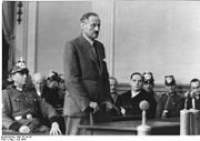
A reshaping of the face of Europe according to Hitler’s ideas now seems inevitable. Its outward manifestation will be a peace that coincides with his broad objectives. The annulment of the Peace of Westphalia is already being prepared in Muenster and Osnabruck. It is as yet open whether the reduction of France’s power to will be combined, as it now seems, with a certain tolerance of England overseas, is to remain the order of the day, or the complete destruction of the British Empire is to form the main emphasis.
The inner manifestation will be the rise to power of Socialism as Hitler sees it, the breaking up of the upper classes, the reduction of the churches to insignificant sects, and so on. Since National Socialism, as it has developed, lacks any semblance of a soul and has force as its only ideal, we shall have a Nature without God, a Germany with neither soul nor culture and perhaps also a Europe raw and without conscience.
1941 World War II: The Bismarck sinks HMS Hood:

The Bismarck was the most modern of Germany’s battleships, a prize coveted by other nations’ navies, even while still in the blueprint stage (Hitler handed over a copy of its blueprints to Joseph Stalin as a concession during the days of the Hitler-Stalin neutrality pact). The HMS Hood, originally launched in 1918, was Britain’s largest battle cruiser (41,200 tons)-but also capable of achieving the relatively fast speed of 31 knots. The two met in the North Atlantic, northeast of Iceland, where two British cruisers had tracked down the Bismarck. Commanded by Admiral Gunther Lutjens, commander in chief of the German Fleet, the Bismarck sunk the Hood, resulting in the death of 1,500 of its crew; only three Brits survived.
During the engagement, the Bismarck‘s fuel tank was damaged. Lutjens tried to make for the French coast, but was sighted again only three days later. Torpedoed to the point of incapacity, the Bismarck was finally sunk by a ring of British warships. Admiral Lutjens was one of the 2,300 German casualties. (History.com)
1943 Various:
Holocaust:
Josef Mengele (The Angel of Death) arrives at Auschwitz:
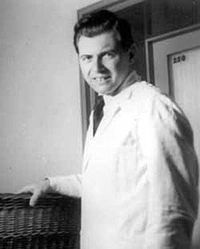
On this day in 1943, the extermination camp at Auschwitz, Poland, receives a new doctor, 32-year-old Josef Mengele, a man who will earn the nickname "the Angel of Death."
Born March 16, 1911, in Bavaria, Mengele studied philosophy under Alfred Rosenberg, whose racial theories highly influenced him. In 1934, already a member of the Nazi Party, he joined the research staff of the Institute for Hereditary Biology and Racial Hygiene.
Upon arriving at Auschwitz, and eager to advance his medical career by publishing "groundbreaking" work, he began experimenting on live Jewish prisoners. In the guise of medical "treatment," he injected, or ordered others to inject, thousands of inmates with everything from petrol to chloroform. He also had a penchant for studying twins, whom he used to dissect.
Mengele managed to escape imprisonment after the war, first by working as a farm stableman in Bavaria, then by making his way to South America. He became a citizen of Paraguay in 1959. He later moved to Brazil, where he met up with another former Nazi party member, Wolfgang Gerhard. In 1985, a multinational team of forensic experts traveled to Brazil in search of Mengele. They determined that a man named Gerhard, but believed to be Mengele, had died of a stroke while swimming in 1979. Dental records later confirmed that Mengele had, at some point, assumed Gerhard’s identity, and was in fact the stroke victim. (History.com)
Unauthorized massacres:
SS 2nd Lieutenant Max Täubner, commanding officer of a supplies workshop platoon and an officer in Kommandostab RF-SS, is tried for conducting unauthorized massacres of Jews in Russia. Tubner is sentenced to a total of ten years imprisonment, expelled from the SS, and declared unfit for service. (see June 1, 1943 and January 16, 1945) (THP) [This was the] only known case in which an SS officer was punished for killing Jews . . . . Max Täubner and his men carried out thousands of killings without orders and in a particularly savage way. Their rogue actions, however, might have gone unimpeded had the perpetrators not boasted and sent photographs to friends and relatives. The potential for publicity and embarrassment, as well as other considerations, formed the crux of the legal case: the unauthorized murder of thousands of Jews otherwise would have constituted to Täubner’s superiors little more than instances of excessive zeal. [For further details, Click here.]
War at Sea: Labeled ‘Black May’ by the Germans: Grand Admiral Karl Doenitz loses 47 U-boats this month; one third of those on station. The admiral orders all his boats from the North Atlantic, and positions them south of the Azores. Doenitz has decidedly lost the Battle of the Atlantic. (Read)
From Doenitz’s post-war interview by the US SBS Team:From April 1943 onward, we had very severe losses, and the numbers had again dropped. It came down again to probably 60. After April 1943, losses were much higher, and the new construction could not keep up. For instance in May 1943, we lost 42 submarines. Our total then was 22 loss, because only 20 were built. 1943 marked a decrease in our submarines and fewer successes. Toward the end of 1943 and (the) beginning of 1944, there were thirty to forty submarines in the combat zone. I had then decided to build a new type submarine, which did not need to surface, because I knew I was beaten by the aircraft as long as I stayed on the surface. When I started this production, the number of U-boats in the operation zone suffered through that again, and came down to 20 or 25. I let the old submarines run out of production gradually, and started building more and more of the new types. The drawings for the new submarines were made in the summer of 1943, and completed in December, 1943. The boats were then built in 1944. They included two types. A large one of 1500 tons and a small one of about 300 tons. At the time of capitulation, we had about five of the small ones—Type XXIII—in the combat zone, and of the large ones—Type XXI—only one boat went to sea, and it did not reach the combat zone . . . . There were about 15 or 20 of the old type, and these were modified by the addition of the ‘Schnorchel.’ That was a sort of air mast which enabled the submarine to stay under water . . . . Just about all (of the U-boats) that went to the combat zone (were fitted with Schnorchels). That would make about 120 altogether.
1945 Death: Robert Ritter von Greim: German field marshal:
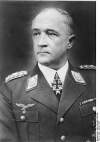
When the Soviet forces had reached Berlin and the Reich was all but doomed, Generaloberst (Colonel-General) Greim flew into Berlin with female flying ace Hanna Reitsch and tried to convince Hitler to fly out of Berlin with him. Hitler refused, but promoted Greim to Generalfeldmarschall, making him the last German officer to achieve the rank of Field Marshal, and appointed him head of the Luftwaffe, having previously dismissed Goering in absentia for treason on account of his having (allegedly) contacted western Allied forces without his consent, with the intention of negotiating a ceasefire. He thus became the second man in the history of the Third Reich to command the Luftwaffe, although with the end of the war in Europe fast approaching, his tenure as Oberbefehlshaber der Luftwaffe would last only a matter of days.
Wounded from his landing in Berlin, Greim was still able to leave the city and was later captured by American soldiers on the day of the surrender of the Third Reich, May 8, 1945. Greim, however, was to be part of a Soviet-American prisoner exchange program and, fearing torture and execution at the hands of the Soviets, committed suicide in Salzburg, Austria, on May 24. His final words before taking potassium cyanide were: "I am the head of the Luftwaffe, but I have no Luftwaffe"
1946 Nuremberg Tribunal: Reich Youth Leader Baldur von Schirach is cross-examined by the Prosecution:
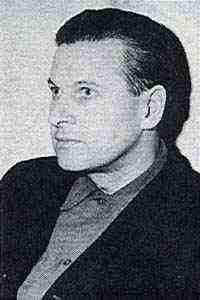
Dodd: Mr. Witness, we understood you this morning to make a statement in the nature of a confession with respect to, at least, the persecution of the Jews; and while that part of it that you gave was perhaps bravely enough said, I think there is much of it that you neglected to say, perhaps through oversight. Now, I wish you would tell the Tribunal whether or not it is a fact that your responsibility for young people in Germany under the National Socialists was fundamentally concerned with making really good National Socialists out of them, in the sense of making them fanatical political followers.
Schirach: I considered it my task as educator to bring up the young people to be good citizens of the National Socialist State.
Dodd: And ardent followers and believers in Hitler and his political policies?
Schirach: I believe I already said this morning that I educated our youth to follow Hitler. I do not deny that.
Dodd: All right. And while you said to us that you did not have the first responsibility for the educational system, I am sure you would not deny that for all of the other activities with which young people may be concerned you did have first responsibility?
Schirach: Out-of-school education was my responsibility. [For the full testimony, Click here.]
From The Nuremberg Trial by Ann and John Tusa:
During the statement Gilbert had noticed the tension in the dock: Frank, Funk and Raeder dabbing their eyes, Streicher sneering. When Schirach went down to lunch he was congratulated by Fritzsche, Funk and Speer, and in their own room Papen, Neurath and Schacht agreed he was perfectly right in his judgement of Hitler. Goering had not been in court; he was excused on grounds of indisposition. Gilbert suspected that Goering was unwilling to sit through the embarrassment of hearing what Schirach was going to say. That evening Goering complained in equal measure of "treachery" and "sciata"—evidently suffering from all kinds of stabs in the back.
During the weekend Schirach mulled over what he had said. He talked now of Hitler’s ingratitude, the way he himself had been rejected from 1943 and put in constant fear of arrest. He hinted that Hitler had never been at ease among women. He was pleased that Gilbert had taken the notes for his statement to two former Hitler Youth leaders who were being held in the witness wing of the jail and that they had been impressed, and promised to circulate it among former members. Speer was delighted by what had happened. He suggested that he and Schirach should now call each other by the intimate ‘du.’ This invitation held out the prospect of an additional pleasure: "Goering will have a stroke." The Times considered that Schirach’s statement had been expressed in "the bitterest terms the court has heard yet." But no newspaper treated it as particularly sensational, let alone a turning point. Any good impression it might have had was soon wiped away by Schirach’s inept witnesses and his response to cross-examination. (Tusa)
1959 Death: John Foster Dulles:
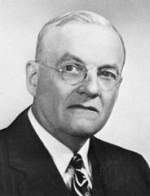
After battling cancer for nearly three years, former Secretary of State John Foster Dulles dies. Dulles served as secretary of state from 1953 until shortly before his death in 1959 and was considered one of the primary architects of America’s Cold War foreign policy during that period. (History.com)
1964 Vietnam War: Goldwater suggests using atomic weapons:
Senator Barry Goldwater (R-Arizona), running for the Republican Party nomination in the upcoming presidential election, gives an interview in which he discusses the use of low-yield atomic bombs in North Vietnam to defoliate forests and destroy bridges, roads, and railroad lines bringing supplies from communist China. During the storm of criticism that followed, Goldwater tried to back away from these drastic actions, claiming that he did not mean to advocate the use of atomic bombs but was "repeating a suggestion made by competent military people." Democrats painted Goldwater as a warmonger who was overly eager to use nuclear weapons in Vietnam. Though he won his party’s nomination, Goldwater was never able to shake his image as an extremist in Vietnam policies. This image was a key factor in his crushing defeat by opponent Lyndon B. Johnson, who took about 61 percent of the vote to Goldwater’s 39 percent. (History.com)

1969 Death: Willy Ley: German-born rocket scientist: Extremely effective popularizer of the idea of space flight: first in Germany and then in the United States.
[See: Wunderwaffen: Hitler’s Deception and the History of Rocketry for links to many Willy Ley science articles.]1971 Albert Speer‘s friend and archivist, Dr Rudolf ‘Rudi’ Wolters—infuriated at Speer’s statements both in Inside the Third Reich and his Playboy interview—writes him a scathing letter:
What on earth is the matter with you, that even after the unending admissions of guilt in your Reminiscences you cannot stop representing yourself ever more radically as a criminal for whom twenty years in prison was "too little"?
If you are really so convinced that "there can’t be any atonement in this lifetime for sins of such huge dimensions," then there appears to be a vast and incomprehensible discrepancy between your humble confessions and your present way of life. For the former would lead one to expect a Speer in sackcloth and ashes; I, however, know you as a merry fellow who undertakes one lovely journey after another and who happily regales his old chums with tales of his literary and financial successes. Of course, I have nothing against the merry Speer, but contrary to this I have to say that both your public mea culpas and your accusations [not only against the active perpetrators but] against your former colleagues (Goering, Goebbels, Bormann, etc.) who, being dead, cannot defend themselves, are agony to me.
What are your friends to say when you describe yourself "morally fatally contaminated"? And always only you and always only in the restricted context of Germany, while you never, never take issue with the present wars and acts of horror being committed in the Near and Far East.
Your defense of the victors’ court at Nuremberg must seem extravagant even to the former prosecutors of that show trial. But I can well understand. If you rejected Nuremberg, your crime thesis would collapse, and then what?
In this letter, my dear Albert, I am saying everything I think . . . . I hope and think that the day will come when you will no longer find it necessary to confess your sins to all and sundry in order to persuade yourself of your virtue.
But I propose that we put off seeing each other again until the end of this phase, i. e., when your exclusive interest in your rehabilitation has ceased. (Sereny)
Edited by Levi Bookin (Copy editor)
levi.bookin@gmail.com



Click to join 3rdReichStudies


Disclaimer: This site includes diverse and controversial materials—such as excerpts from the writings of racists and anti-Semites—so that its readers can learn the nature and extent of hate and anti-Semitic discourse. It is our sincere belief that only the informed citizen can prevail over the ignorance of Racialist "thought." Far from approving these writings, this site condemns racism in all of its forms and manifestations.
Fair Use Notice: This site may contain copyrighted material the use of which has not always been specifically authorized by the copyright owner. We are making such material available in our efforts to advance understanding of historical, political, human rights, economic, democracy, scientific, environmental, and social justice issues, etc. We believe this constitutes a "fair use" of any such copyrighted material as provided for in section 107 of the US Copyright Law. In accordance with Title 17 U.S.C. Section 107, the material on this site is distributed without profit to those who have expressed a prior interest in receiving the included information for research and educational purposes. If you wish to use copyrighted material from this site for purposes of your own that go beyond ‘fair use’, you must obtain permission from the copyright owner.
Please Note: The list-owner and moderators of 3rdReichStudies are not responsible for, and do not necessarily approve of, the random ads placed on our pages by our web server. They are, unfortunately, the price one pays for a ‘free’ website.